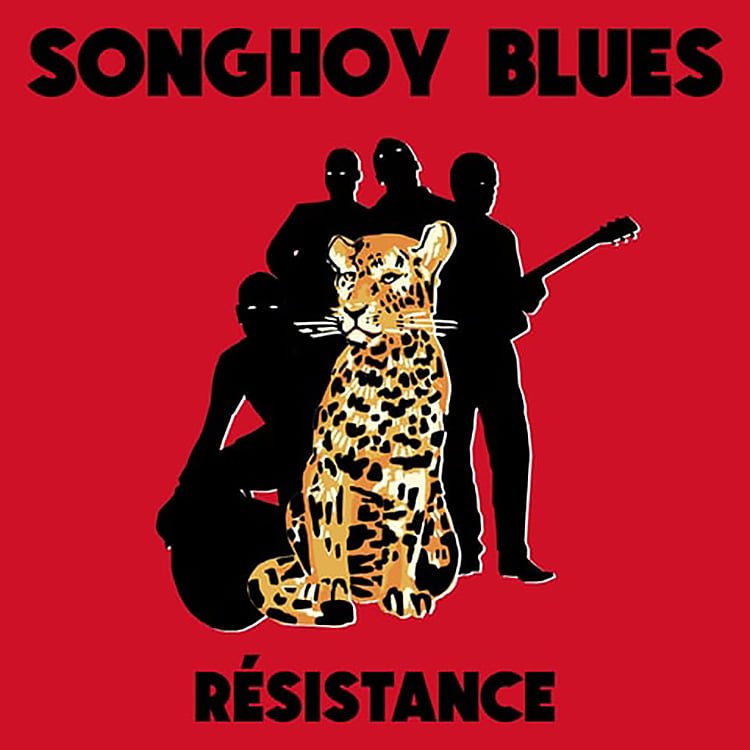Back in 2013, the story of Songhoy Blues made the headlines. After being forced to move to Bamako by a jihadist group that banned music in northern Mali, Garba Touré founded the band “to recreate that lost ambience of the north and make all the refugees relive those northern songs”.
Around the same time, Nick Zinner (Yeah Yeah Yeahs) was scouting West Africa for Africa Express. After an informal audition with Amadou & Mariam’s manager Marc-Antoine Moreau, the band was introduced to Zinner, who produced the track “Soubour”, meaning “patience”, a reference to the situation of northern refugees in Bamako.
Pushed by its powerful story, their first album, Music in Exile (published in 2015) was met with fervour by critics and media alike: Julian Casablancas (The Strokes) liaised in its release in Northern America through Transgressive Records, and Songhoy Blues were featured as main characters in the documentary They Will Have to Kill Us First.
Their new album was comprehensively surrounded by great anticipation.
La Résistance (Transgressive Records/Border Music), is a much bigger, bolder, and louder record than their debut. The band’s guitar wizardry can be heard all over, and particularly on the opening track, “Voter”, with its Jack White-esque riffs. Curiously enough for a band identified with desert blues, La Résistance seems to owe a larger debt to Stevie Wonder’s Hotter Than July than to anything by Ali Farka Touré. The feverish guitar work is slightly thicker than James Brown’s (“Yersi Yadda”), and brasses play a key role in sustaining many of this record’s best tunes (“Bamako” and “Dabari”).
Iggy Pop lends his voice for the second verse of “Sahara”, and London MC Elf Kid does the same on “Mali Nord”. Both contributions are negligible, neither adding anything to Songhoy Blues’ voice nor fitting with their style. Verdict: a publicity stunt.
Songhoy Blues have certainly made good use of the resources at their disposal. They have enlarged their sound palette and – in strictly stylistic terms – moved past their musical origins. Most importantly, what is audible behind every track of this album is a band doing what they are best at, and enjoying it tremendously.


